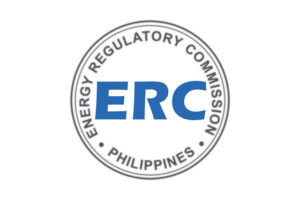THE House of Representatives energy committee is considering amendments that will expand the Energy Regulatory Commission (ERC) charter, including the introduction of benchmarking in generation rate-setting while expediting the body’s ruling and appeals process.
“The Energy Regulatory Commission is hereby reconstituted as an independent, accountable, quasi-judicial, and rule-making regulatory body, with powers to promulgate and enforce rules and regulations to effectively implement the provisions of the EPIRA (Electric Power Industry Reform Act) and this act,” according to a Sept. 1 copy of the draft bill obtained by BusinessWorld.
The ERC discussions are part of a broader effort to amend EPIRA, the law that deregulated the energy industry.
The ERC will be required to publish benchmark rates, to be updated at least annually, according to the draft, which is a substitute bill amending EPIRA.
The panel is also considering a provision requiring the ERC to rule on administrative cases within 30 days, with summary and regular quasi-judicial cases given 60 to 180 days, respectively. Appeals on all cases should be resolved by the body within 30 days.
Regular quasi-judicial cases involve matters directly concerning consumer rates, with summary decisions concerning power supply agreements and benchmark cases. Administrative issues include cases that do not directly affect consumers, according to the draft bill.
Legislators are also considering expanding the number of commission seats to eight from four, adding a requirement that they have “extensive familiarity” with the energy sector.
It also expanded the number of cases the ERC en banc can take on, to include reviews of “long-term power supply agreements, setting of distribution rates and major capital expenditures” of power companies. Conflicting decisions released by lower commission divisions could also be elevated to the en banc level for review, according to the bill.
Legislators are looking to fast-track amendments to EPIRA, committing to finish power sector reforms before the Christmas break, to resolve issues like mounting energy costs.
Amendments to EPIRA have been designated as priorities of President Ferdinand R. Marcos, Jr. for the 19th Congress. Measures seeking to amend EPIRA remain pending at the House and Senate energy panels.
Speaker and Leyte Rep. Ferdinand Martin G. Romualdez in July said EPIRA “is a complicated law,” describing it as a “big piece of legislation.”
“The ERC plays a pivotal role in ensuring affordable and reliable energy. As such, strengthening its authority is essential,” Nic Satur, Jr., chief advocate officer of Partners for Affordable and Reliable Energy, said via Facebook Messenger.
He noted, however, that expanding the ERC to eight members could worsen red tape. “A larger commission could lead to increased bureaucracy, slower decision-making, and higher operational costs.”
“Any amendments to the EPIRA and the ERC should address the limited staffing problem of the current commission,” Terry L. Ridon, convener of think-tank InfraWatchPH, said via Viber. “With an expanding set of generating facilities responding to growing electricity demand, the current number of technical staff is insufficient to timely respond, review and decide on new and pending applications.”
The commission is tasked with assessing its workforce capabilities, allowing the ERC to restructure every five years “if there is a need for further… reorganization,” according to the draft measure.
Mr. Satur said granting the ERC to review power agreements and distribution rates could spur competitiveness in the power industry, ultimately benefiting consumers in the form of “competitive pricing.”
The draft substitute bill also included a provision allowing the ERC to collaborate with the Philippine Competition Commission in cases of suspected “abuse of market power, cartelization, and anti-competitive… behavior.” It will be granted the power to impose a maximum fine of P500 million and P50 million for organizations and individuals, respectively.
“This framework offers the potential for more effective enforcement, stronger penalties, and increased transparency,” Mr. Satur said, thereby protecting consumers from inflated electricity costs due to anti-competitive practices prejudicial to the public interest. — Kenneth Christiane L. Basilio
